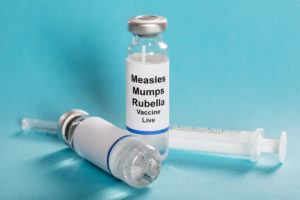
By the Minnesota Council of Health Plans and the Minnesota Hospital Association
Measles is highly contagious and can be serious — even fatal. More than 100,000 people die from measles each year worldwide; most are under the age of five.
With school back in session you’ll want to make sure your child is up to date with this important vaccination. The measles vaccine has been around for more than 50 years, and it’s been so effective that the United States declared measles “eliminated” back in 2000.
Unfortunately, measles outbreaks still occur in the U.S. and are on the rise. The year 2019 saw the most U.S. measles cases in the last 25 years. In 2017, Minnesota experienced its worst measles outbreak since 1990, with almost a third of the patients who contracted the infection needing hospitalization.
So, what’s behind these concerning trends? Experts blame myths and misinformation. Here are the facts: Vaccines do not cause autism spectrum disorder, infant immune systems are strong enough to handle current vaccination schedules and there’s no risk of getting measles from the vaccine, either.
Without the vaccine, children could be exposed to this highly contagious virus. Among people exposed to measles, studies show 90% will become infected if they’re not vaccinated. Measles is spread through the air as infected people breathe and cough. Measles can lead to pneumonia, brain damage, deafness and even death.
Symptoms of measles typically appear 10-14 days after exposure. Your child might have a fever, dry cough, runny nose, sore throat, inflamed eyes, diarrhea, ear infections and a blotchy skin rash. Often the inner lining of the cheek may reveal tiny white spots with bluish-white centers on a red background.
A Three-for-one
The measles vaccine is combined with vaccines for mumps and rubella (MMR). Children usually receive their first shot when they are 12-15 months old and again when they’re between four and six.
Mumps often causes puffy cheeks and a swollen jaw. It’s also contagious. The virus is often spread in environments where there is close, extended contact with infected people. Symptoms also include fever, headache, muscle aches and fatigue.
Rubella is contagious and is most often spread from coughing or sneezing. It poses its greatest threat to pregnant women. If infected, women could have a miscarriage, or the child could die shortly after being born. The child could also be born with birth defects.
Talk to your health care provider about the MMR vaccine and whether your kids are up to date on their immunizations. Preventive care—including vaccinations—can help keep families and communities healthy.